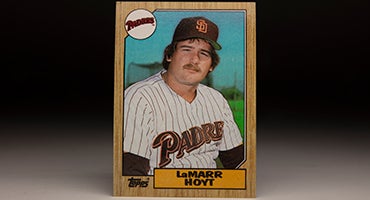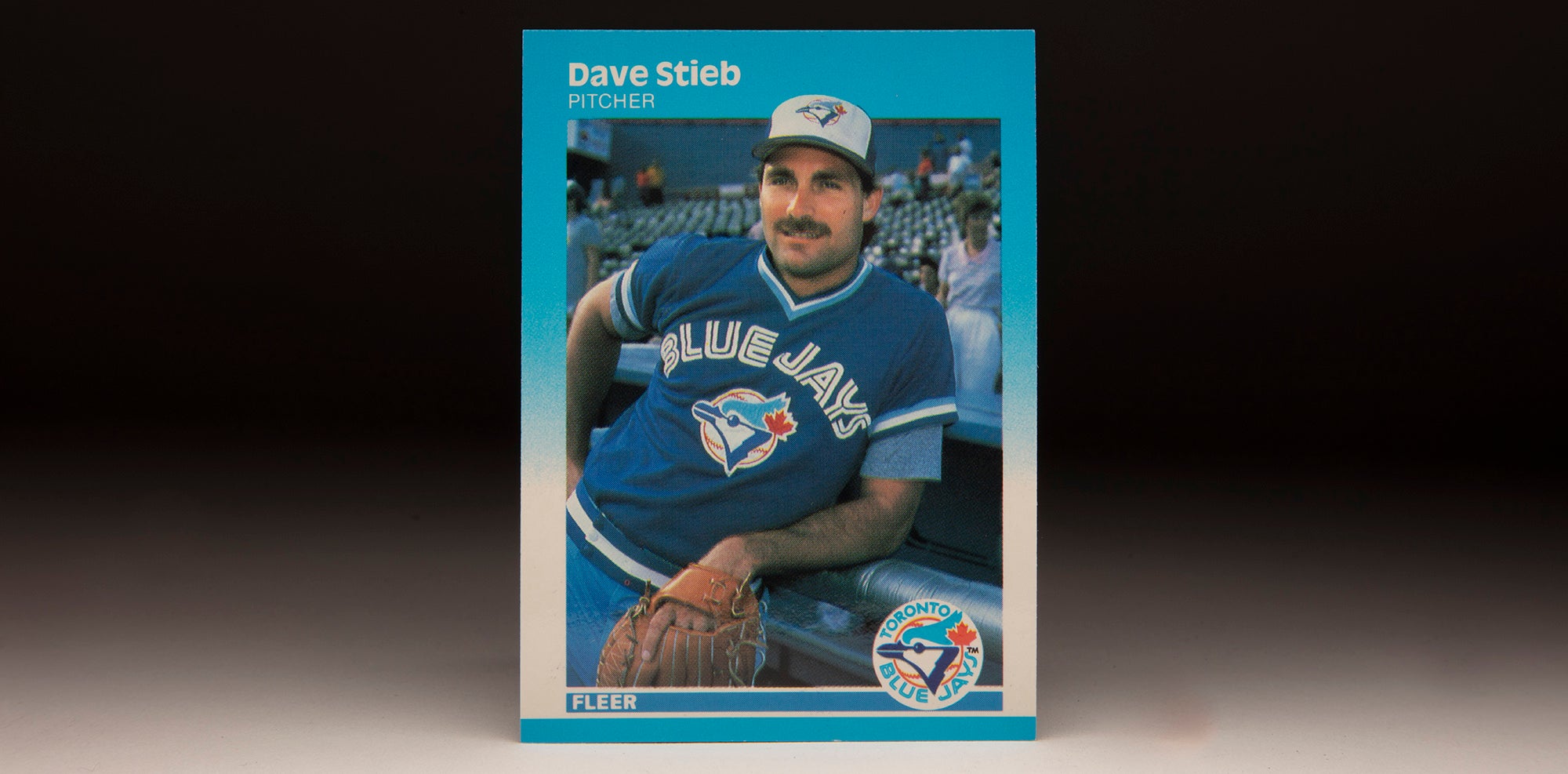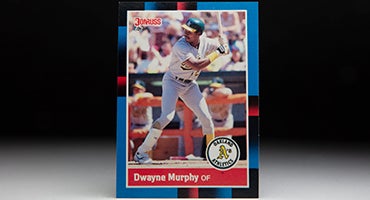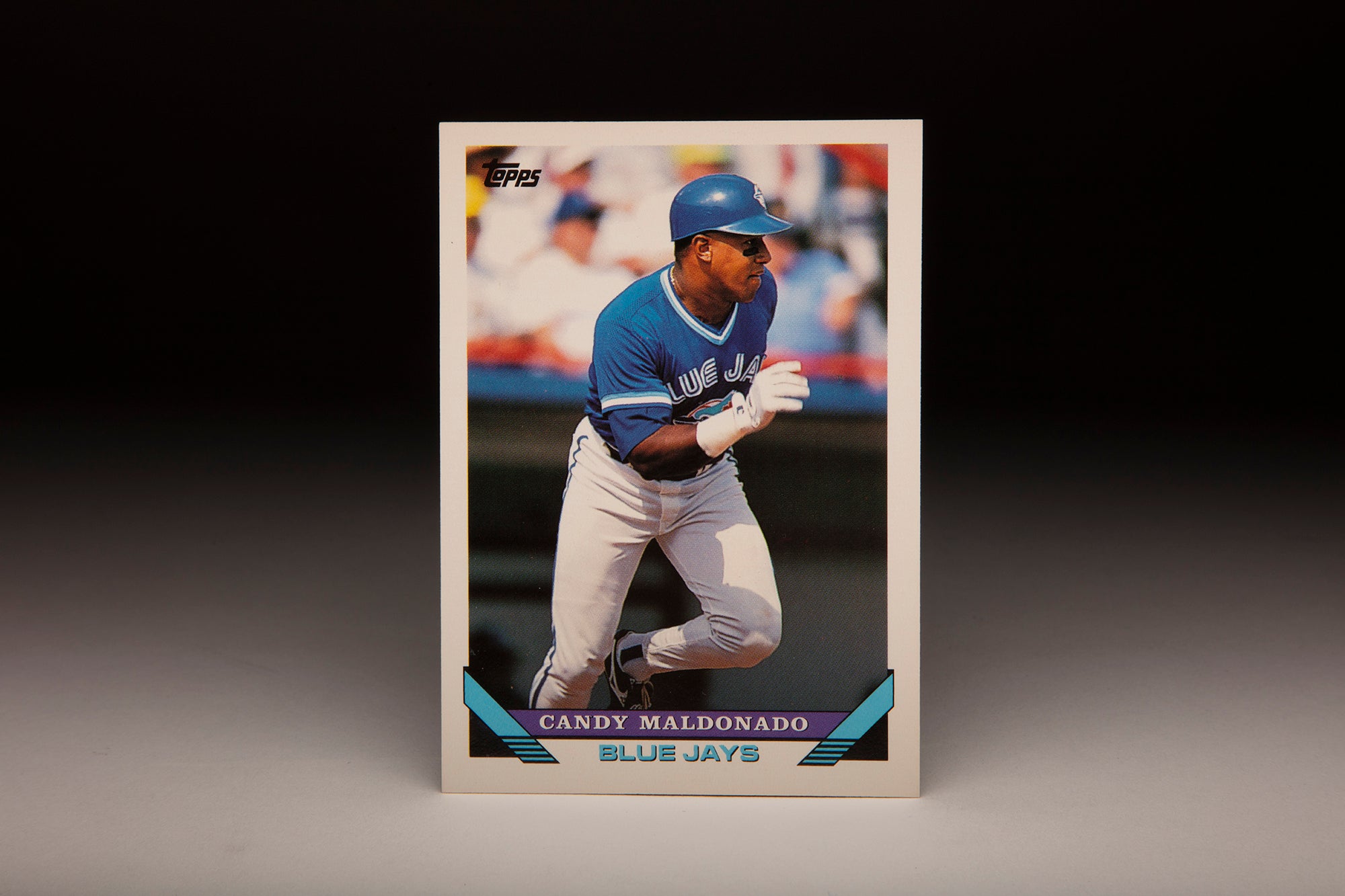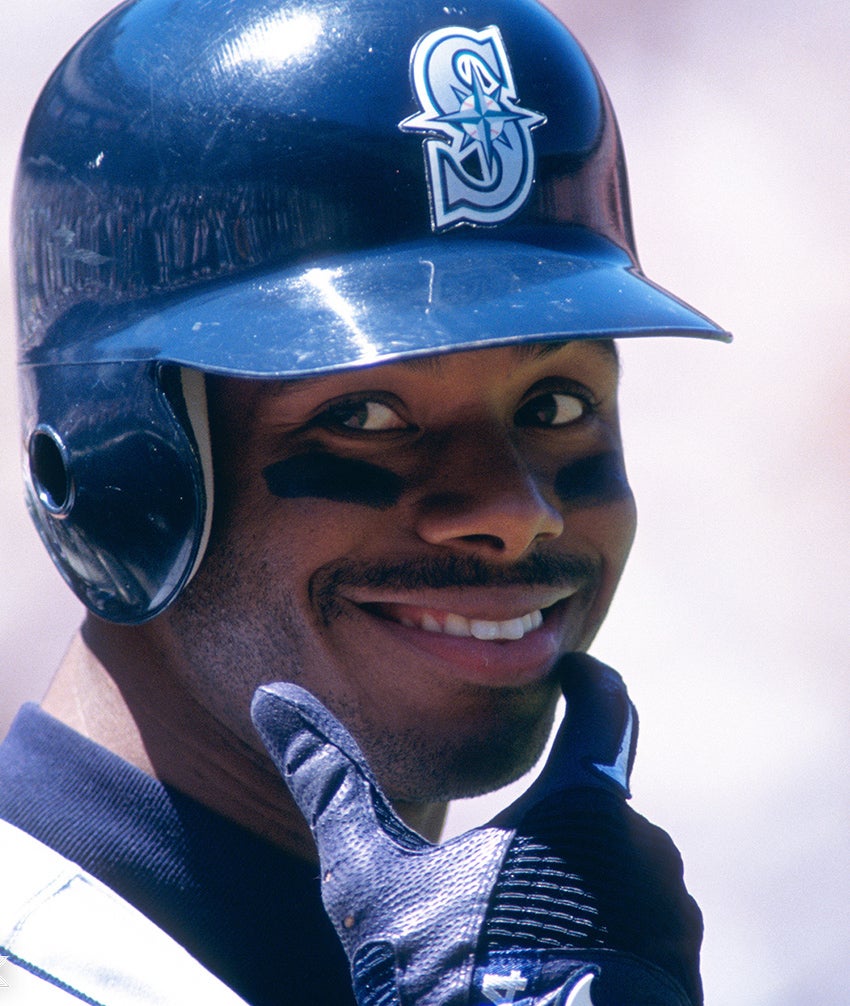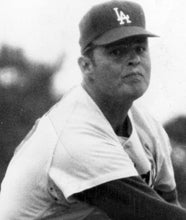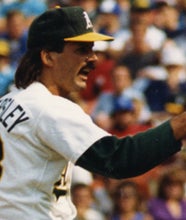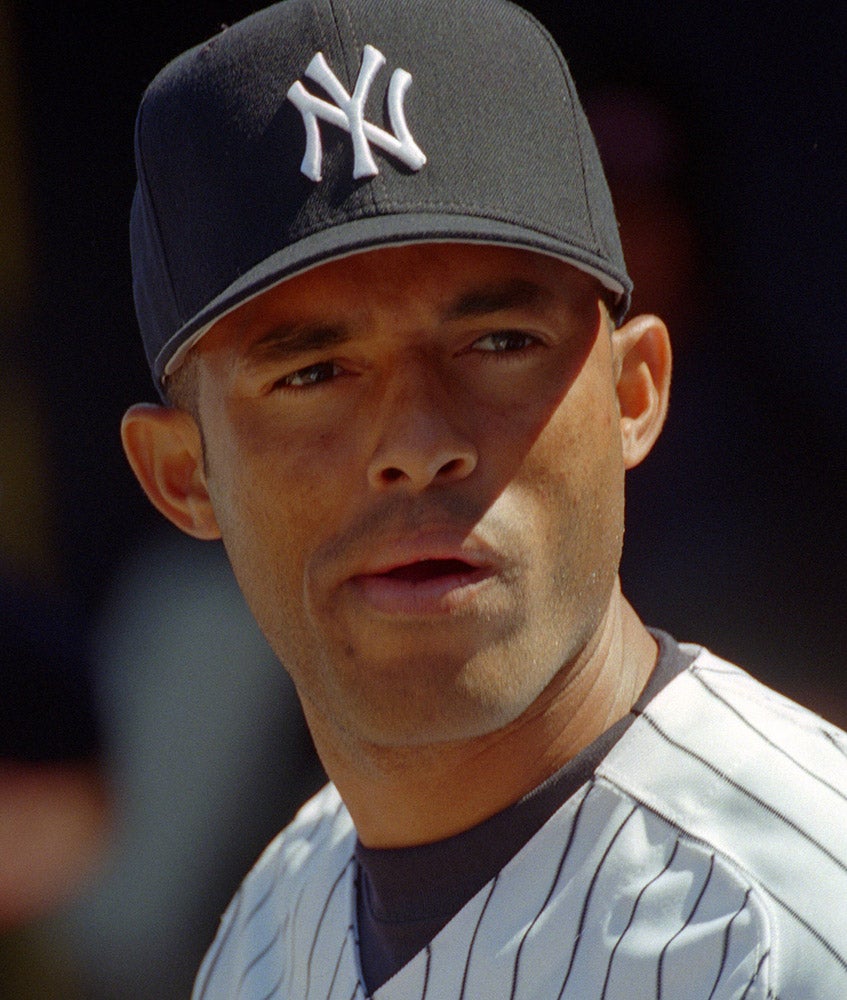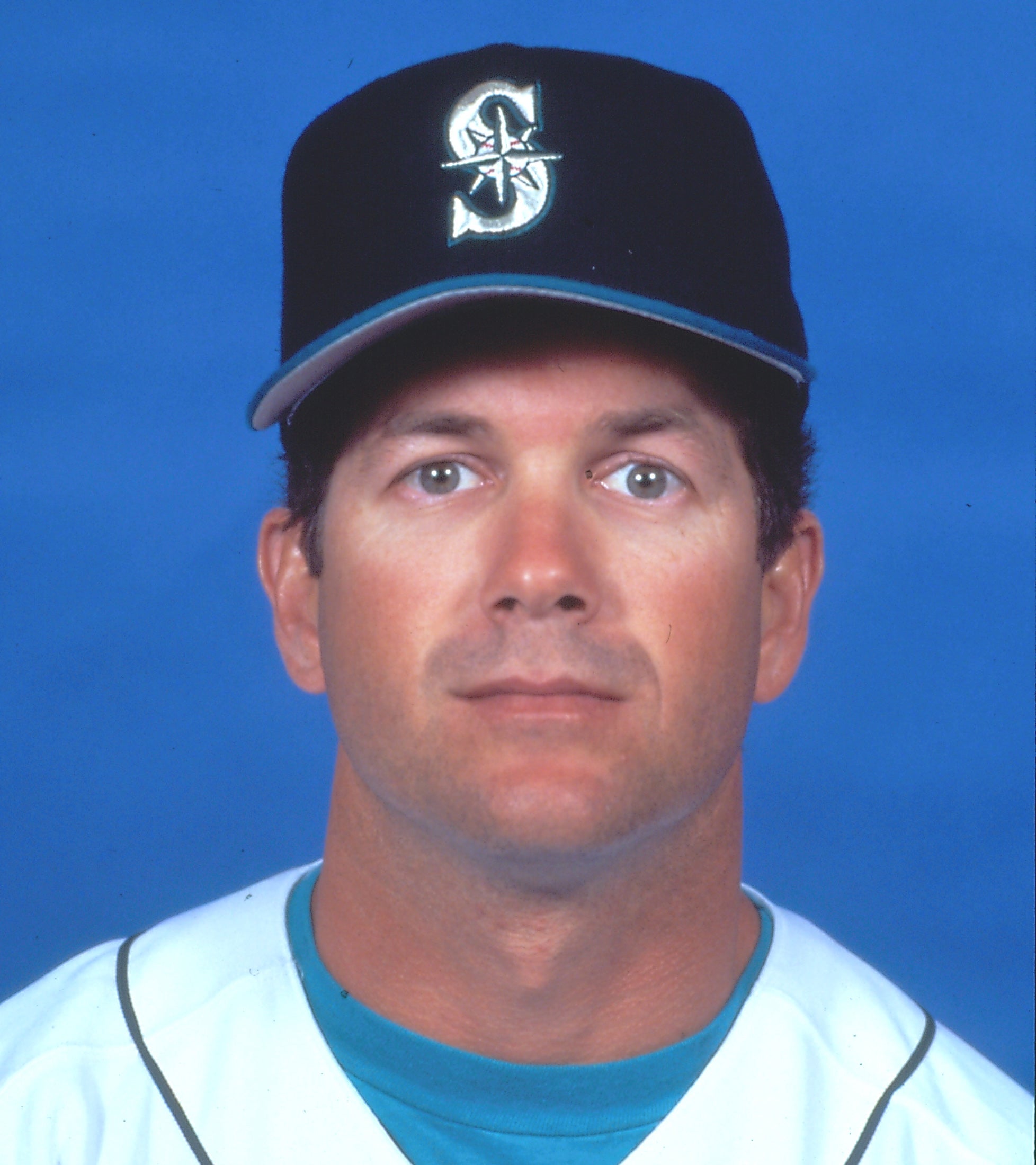- Home
- Our Stories
- #CardCorner: 1988 Donruss Jack McDowell
#CardCorner: 1988 Donruss Jack McDowell
Jack McDowell pitched so well at Stanford University that some publications speculated he might become the first overall pick in the 1987 MLB Draft.
The Mariners wound up taking Ken Griffey Jr. with that pick, and eight years later Griffey scored the winning run of the ALDS when Edgar Martinez’s two-run double off McDowell sent Seattle into a city-wide frenzy.
By then, McDowell’s run as one of the top pitchers in the game was nearing an end. But in between the draft and Martinez’s iconic two-bagger, McDowell was one of the most durable and successful hurlers in the game.
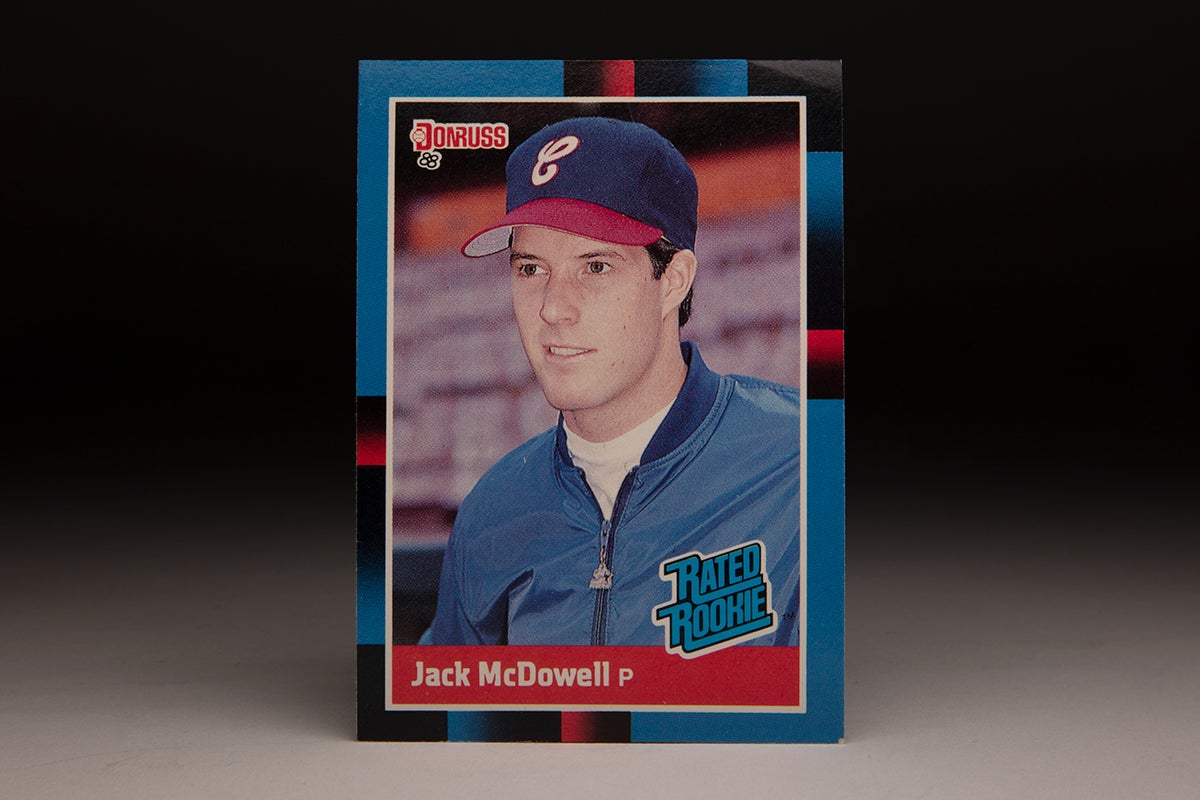
Born Jan. 16, 1966, in Van Nuys, Calif., Jack Burns McDowell attended Notre Dame High School in Sherman Oaks and was already making headlines as an American Legion All-Star by the time he was 17. In 1984, McDowell found himself pitching for Team USA in the World Youth Baseball Championship in Kindersley, Saskatchewan.
“I don’t know of anyone in North America, let alone Canada, with something like that for a pitch,” Team Canada manager Jim Ridley told the Leader-Post of Regina of McDowell’s forkball after McDowell struck out 18 to lead Team USA past Canada 8-1 in the WYBC. “We didn’t hit a fly ball all game. Their outfielders didn’t have to catch a ball.”
McDowell committed to Stanford University during his senior season while helping Notre Dame ascend to the No. 1 ranking in the country. The Red Sox took McDowell in the 20th round of the 1984 MLB Draft, but McDowell saw his future at Stanford.
As a freshman, McDowell helped Stanford advance to the College World Series and then pitched for a team of college all-stars that toured Japan. He was named a second-team All-American in 1986.
Then in 1987, McDowell started the season slowly after he was hit in the face by a pot during the holiday season – an injury that required 300 stitches. But McDowell recovered to go 13-5, helping Stanford advance to the College World Series. In the championship game against Oklahoma State, McDowell started on two day’s rest and worked into the eighth inning before faltering.
“He kept us in the game,” Stanford reliever Steve Chitren, who relieved McDowell and protected Stanford’s 6-5 lead that became a 9-5 win, told the Associated Press. “If we don’t get those innings from Jack, we don’t win. He gave his all for us.”
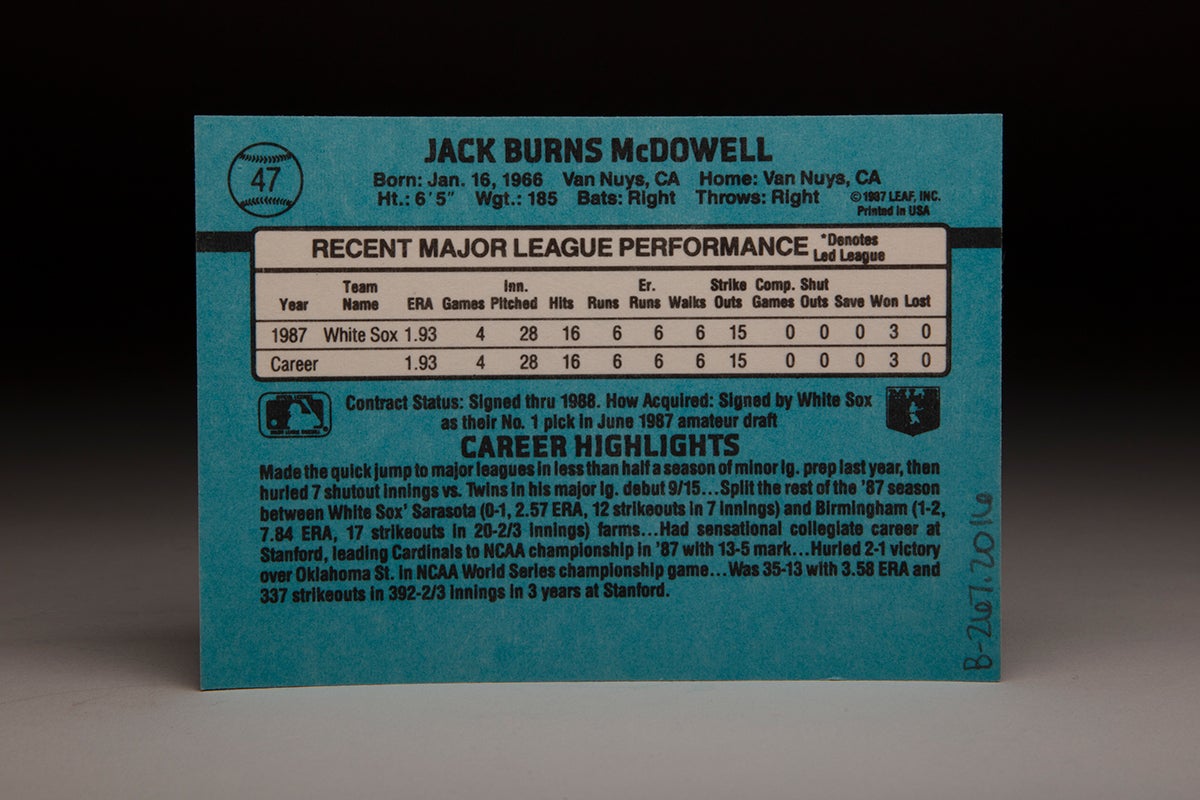
Now draft-eligible again after posting a career 35-13 mark and setting the school’s strikeout record, McDowell was rated as one of the top prospects in the country. The Mariners took Griffey with the first overall pick in the MLB Draft on June 2, 1987, and the Pirates followed by selecting high schooler Mark Merchant, who never made it to the big leagues. After the Twins took Willie Banks and the Cubs tabbed Mike Harkey, the White Sox selected McDowell with the No. 5 pick.
“We were worried another club would take him ahead of us,” White Sox general manager Larry Himes told the Chicago Tribune. “We just got lucky.”
The White Sox sent McDowell to their Gulf Coast League team for two quick appearances before promoting him to Double-A Birmingham, where he went 1-2 with a 7.84 ERA in four starts. But McDowell had negotiated into his contract a guarantee that the White Sox would promote him to the big leagues that September.
On Sept. 15, McDowell made his MLB debut, pitching seven shutout innings against the eventual World Series champion Twins while allowing just four hits and no walks.
“The kid’s got a good fastball, and that’s something you can’t teach,” broadcaster Don Drysdale, who like McDowell was 6-foot-5 and from Van Nuys, Calif., told the Chicago Tribune after McDowell’s debut. “That was me 30 years ago. And I was even skinnier.”
McDowell went 3-0 in four starts with the White Sox that September, posting a 1.93 ERA and looking every bit the future star.
“First, I won the College World Series for Stanford,” McDowell told the AP after his final outing of the season on Oct. 1, “and then I come here and don’t lose a game.”
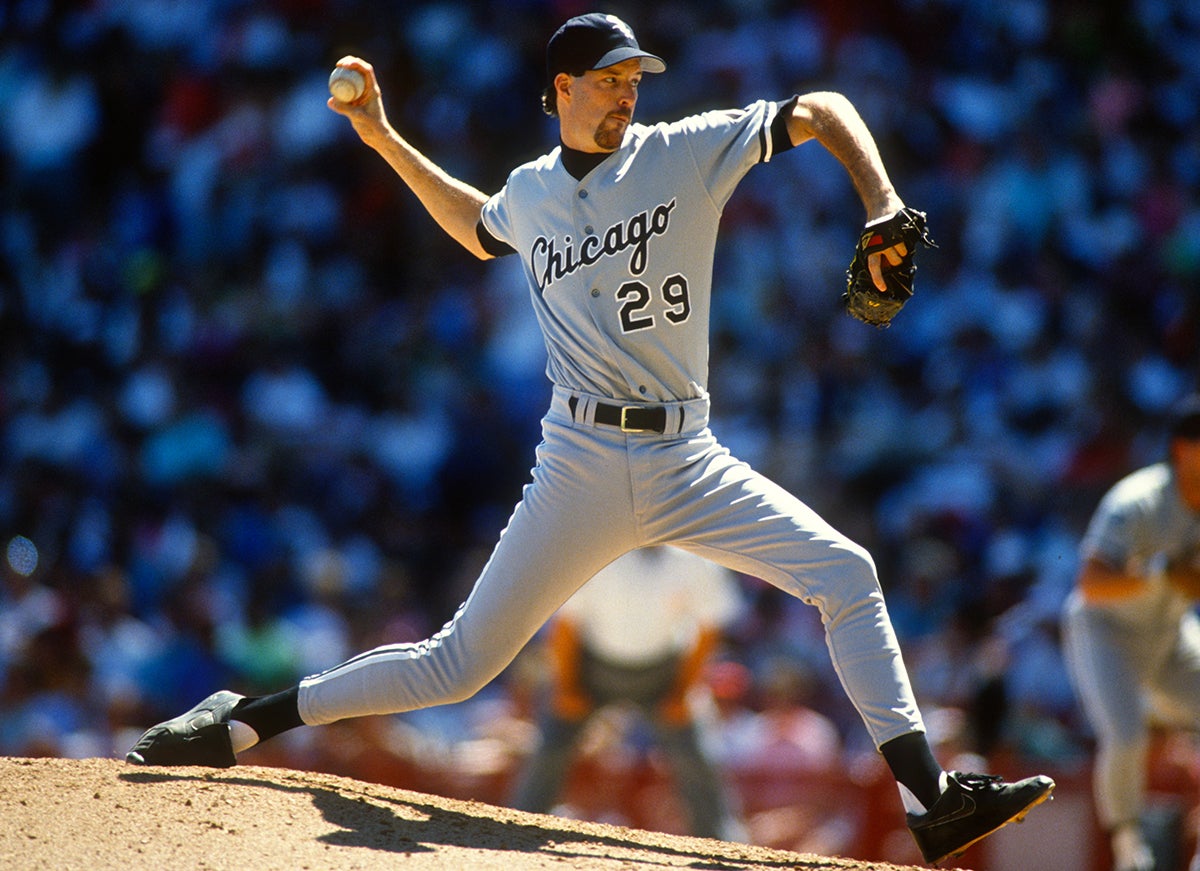
Unsurprisingly, McDowell was the talk of White Sox camp in 1988.
“The great thing about McDowell is his confidence,” White Sox manager Jim Fregosi told the AP during McDowell’s rookie season. “Because ability means absolutely nothing if you don’t think you can win.”
McDowell earned a spot in Chicago’s starting rotation in 1988 and pitched the team’s second game of the season, allowing just four hits and one earned run in a no-decision against the Angels on April 6. But the league soon caught up with him, and his earned-run average was north of 5.00 heading into June.
McDowell finished the season with a 5-10 record and 3.97 ERA in 26 starts – and did not make an appearance in September after being sidelined with a groin injury. After struggling during Spring Training in 1989, McDowell was sent to Triple-A Vancouver on April Fool’s Day. From there, things only got worse.
“(McDowell) came down to Spring Training this year not completely ready to compete because of the injury,” White Sox general manager Larry Himes told the Los Angeles Times in the summer of 1989. “We didn’t see the pop in his fastball.”
By May, McDowell was 1-2 with an 8.70 ERA in seven starts. He left the bullpen mound during a frustrating between-starts session on May 18, and the White Sox soon sent him home to Van Nuys for a reset and some time with orthopedic doctor Robert Kerlan, who suggested going back to his old mechanics that he had used in high school and college.
“Not knowing his underlying problem (a chronic left hip condition), they (the White Sox) didn’t think that the motion he developed at Stanford was really what they wanted in the major leagues,” Kerlan told the Los Angeles Times. “They had him make changes, and in so doing, it caused stress on his arm.”
McDowell began the road back with the White Sox’s Gulf Coast League affiliate in June and then returned to Vancouver, where he finished the season with a 5-6 record and 6.13 ERA. He did not pitch in the big leagues that season.
Determined to get back to the majors, McDowell reported to Spring Training in 1990 with a renewed resolve.
“I’ve always been aggressive,” McDowell told the Chicago Tribune. “I was termed a hot-headed player in high school and even in college. I just wanted to win. I won’t give in too many times. That’s not my nature. I thrive on pressure. It gets me riled up. It makes me a better pitcher.”
McDowell made 33 starts with the White Sox in 1990, going 14-9 with a 3.82 ERA in 205 innings. It would be the start of a dominant five-year stretch for McDowell, who became one of the game’s workhorses on the mound.
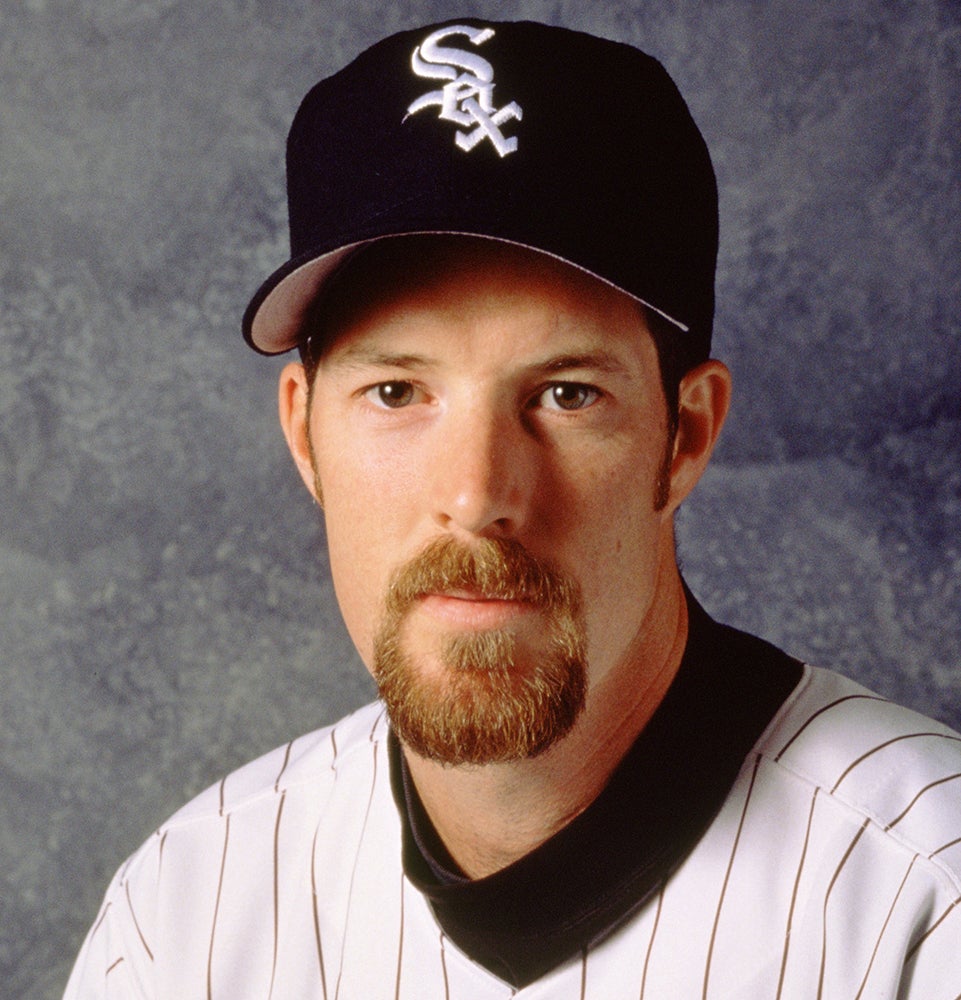
In 1991, McDowell led all big league pitchers with 15 complete games while going 17-10 with a 3.41 ERA over 253.2 innings. He earned his first All-Star Game selection and finished ninth in the American League Cy Young Award voting.
“It’s not really sinking in,” McDowell told the Chicago Tribune about his first trip to the All-Star Game. “I still see myself as a spectator.”
Eligible for arbitration for the first time heading into the 1992 season, McDowell asked for $2.3 million while the White Sox countered with an offer of $1.6 million. McDowell had hoped for a negotiated settlement – but when that was not forthcoming, the arbitrator sided with the White Sox.
“They (the White Sox) didn’t try to break me down personally,” McDowell told the Tribune after the hearing, calling the outcome “a blatantly unfair loss.”
McDowell proved more than worth his salary that year, going 20-10 with a 3.18 ERA in 260.2 innings, including a big league-best 13 complete games. McDowell finished second in the AL Cy Young voting behind Oakland’s Dennis Eckersley, who was also named the AL MVP that year.
McDowell endured another arbitration hearing in 1993, representing himself with assistance from his brother, Jim McDowell. He asked for and received a $4 million salary this time but was clearly not amused with the process.
“It’s hard not to let things like that affect you,” McDowell told the Tampa Bay Times in 1993 as he was cultivating the goatee-and-work boots look that would earn him the nickname “Black Jack”.
“All you can really do is hope that you’re appreciated for what you’ve done.”
McDowell often taped quotes to his locker, including one that read: “The things you hold dearly are scoffed at and yearly judged once and then left aside.”
McDowell was arguably baseball’s best pitcher in 1993, going 22-10 with a 3.37 ERA, 10 complete games and a big league-leading four shutouts over 256.2 innings.
“If I have one game to win and I can pick any pitcher in the league, I think I’d pick Jack McDowell,” White Sox manager Gene Lamont told the Tampa Bay Times during the 1993 season. “They can’t hold that against me when he goes to arbitration, can they?”
The White Sox won the AL West title, and McDowell started Games 1 and 5 of the ALCS vs. the Blue Jays. Toronto, however, touched him up for 13 hits and seven runs in a 7-3 loss in Game 1, then knocked him out of the box in the third inning en route to a 5-3 win in Game 5. The Blue Jays won the series in six games.
McDowell and the White Sox explored a long-term deal after the 1993 season but wound up about $1.5 million apart over three seasons, with the club offering $17.5 million. McDowell then went to arbitration for a third time asking for $6.5 million but receiving $5.3 million – the biggest award ever in arbitration to that point.
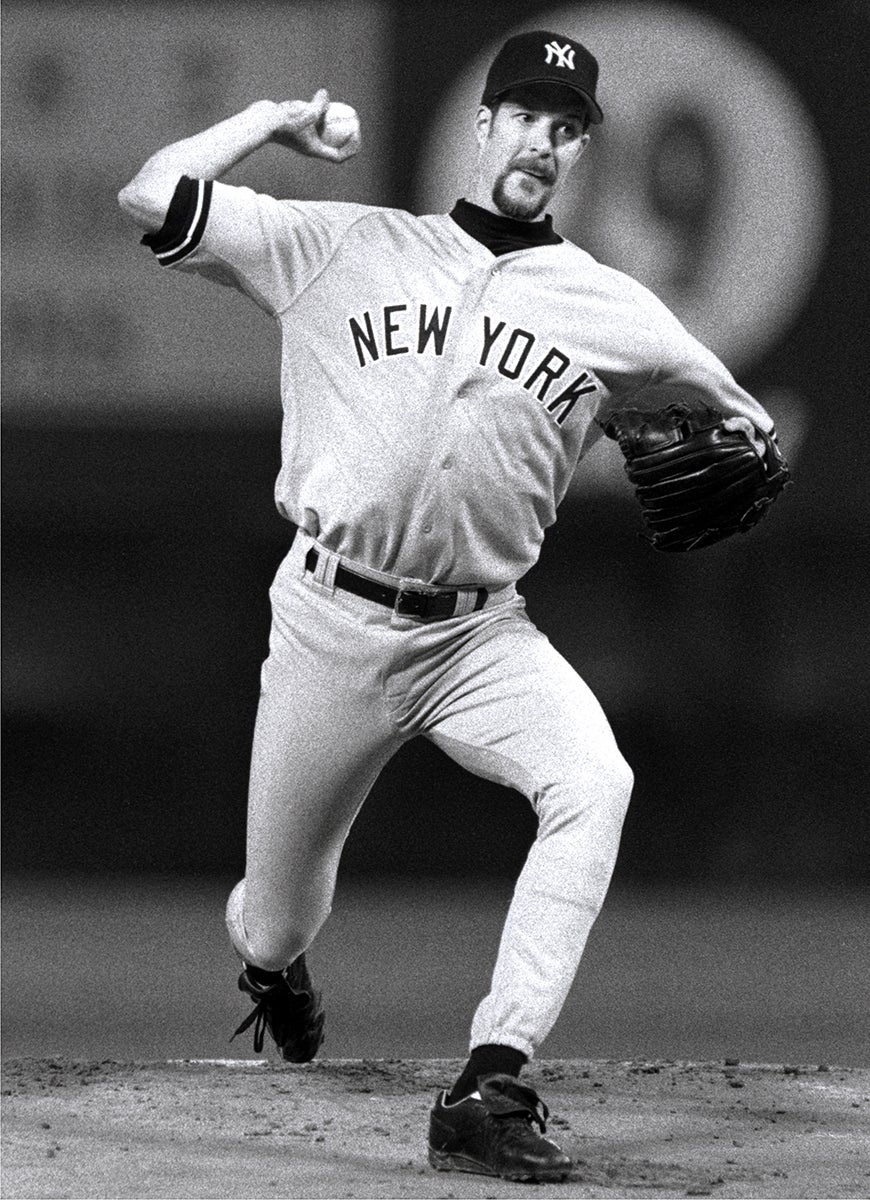
McDowell did not get all that money, however, as the players went on strike in August and the season was never completed. McDowell went 10-9 with a 3.73 ERA over 181 innings in 25 starts. Though he did not receive votes in the Cy Young Award race for the first time since the 1990 campaign, McDowell remained one of baseball’s most coveted pitchers.
Before the work stoppage was settled, the White Sox traded McDowell and a minor leaguer to the Yankees on Dec. 14, 1994, receiving Lyle Mouton in exchange. Because of the strike, McDowell did not accrue enough service time to become a free agent. He instead agreed to a one-year deal worth $5.4 million.
McDowell went 15-10 with a 3.93 ERA and an AL-best eight complete games in 1995, helping the Yankees claim the AL Wild Card. But he found life in New York difficult and was fined after making an obscene gesture toward Yankee Stadium fans after allowing nine runs and 13 hits over 4.2 innings in a game against the White Sox on July 18.
“I’m sorry,” McDowell told the media a day after the loss. “I’m more worried about winning games and helping this team win than I am about my image.”
In the ALDS vs. the Mariners, McDowell started Game 3 – with New York leading 2-games-to-none and needing just one win to advance. The Mariners tagged him for five runs in 5.1 innings in a 7-4 loss, though three of those runs came off Yankees relievers after McDowell left the game.
Then in Game 5, McDowell relieved Mariano Rivera with two on and one out in the bottom of the ninth and the game tied at 4. McDowell struck out Edgar Martinez and got Álex Rodríguez to ground out to send the game to extra innings and then blanked the Mariners in the 10th before New York scored one run in the top of the 11th.
The Record called McDowell’s performance in the ninth inning “…what may have been the best display of postseason pitching since Don Larsen’s perfect game.”
But three batters into the bottom of the 11th, the game was over when Joey Cora led off with a bunt base hit, Ken Griffey Jr. singled Cora to third and Martinez doubled them both home to end the series.
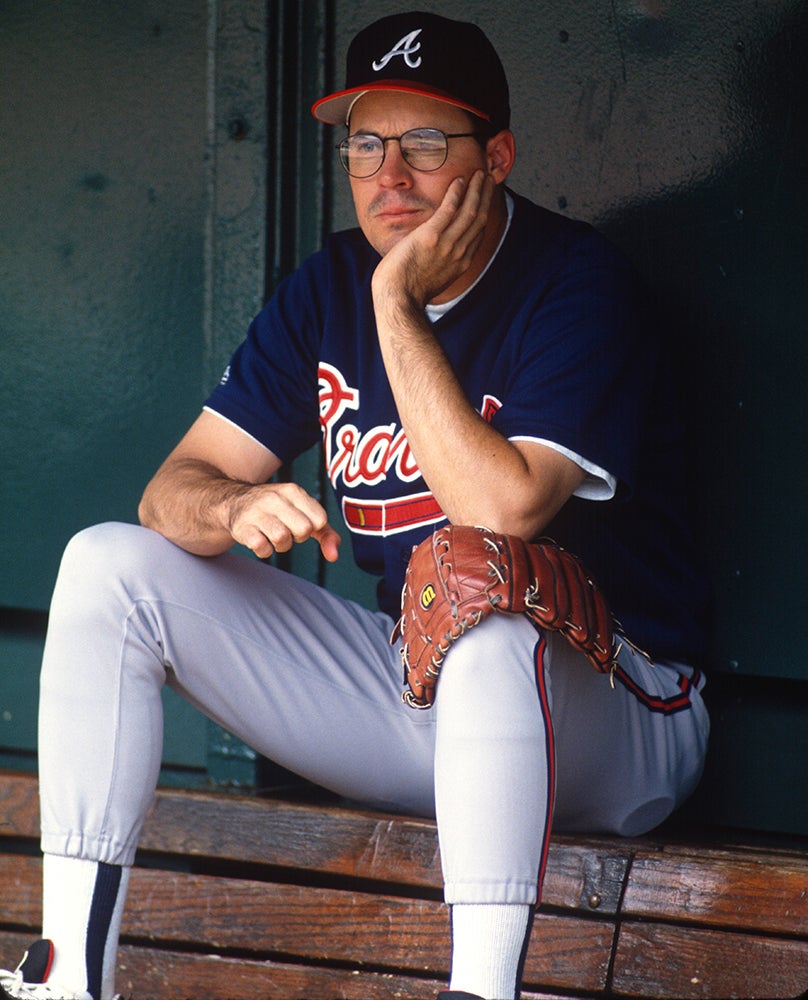
Finally a free agent, on Dec. 14, 1995, McDowell signed a two-year deal with Cleveland – including a club option for 1998 – worth a reported $10.15 million.
“We didn’t have many pieces to fill, and I think some of the pieces were filled from within,” Cleveland general manager John Hart, fresh off a World Series appearance, told the Associated Press. “And I think Jack obviously was the big piece from the outside.”
At that point, the Indians had sold every ticket for the 1996 season, and many thought the addition of McDowell would give Cleveland its elusive World Series title. But the innings load McDowell had shouldered over the last six seasons began to take its toll.
Starting the Indians’ second game of the season in 1996, McDowell was tagged with a loss against the Yankees but picked up his first win in his third start with a shutout against the Red Sox. He entered the month of May with a 2.04 ERA but saw that mark climb steadily throughout the rest of the season thanks to a balky right elbow (which forced him onto the disabled list for the first time in his career), finishing with a 5.11 mark but with a 13-9 record thanks to Cleveland’s high-powered offense that averaged 5.4 runs per game over McDowell’s 30 starts.
Cleveland repeated as AL Central winners in 1996 and McDowell started Game 3 of the ALDS vs. the Orioles, allowing four runs over 5.2 innings while receiving a no-decision in a game Cleveland won 9-4. The next day, Baltimore won 4-3 in 12 innings to end Cleveland’s season.
It would mark the last time McDowell’s team would advance to the postseason.
In 1997, McDowell’s elbow again presented a problem. He surrendered 19 earned runs in his first three starts before working out of the bullpen for two games, returning to the rotation for three starts in May. But when the pain would not subside, McDowell submitted to surgery – an arthroscopic procedure by Dr. James Andrews – that cleaned out the elbow and was expected to sideline him for a month.
McDowell, however, did not pitch again in 1997, finishing with a 3-3 record and 5.09 ERA.
On Nov. 4, the Indians announced they would not pick up McDowell’s option for 1998, allowing him to become a free agent. He signed a one-year deal worth $1 million with the Angels on Feb. 27, 1998 – a contract that would have paid McDowell another $5 million if he started 30 games and worked 210 innings.
“I like Jack’s approach,” Angels general manager Bill Bavasi told the Los Angeles Times after McDowell signed. “He’s a warrior and that’s important to us.”
But after making five starts in April, McDowell spent much of the rest of the season on the disabled list with a sore elbow. He finished the year with a 5-3 record and 5.09 ERA in 14 starts, returned to the Angels on a $500,000 contract for 1999 but underwent surgery for a frayed labrum before Spring Training began. He did not appear in a game until July 23. By then, his fastball velocity was topping out at about 88 mph.
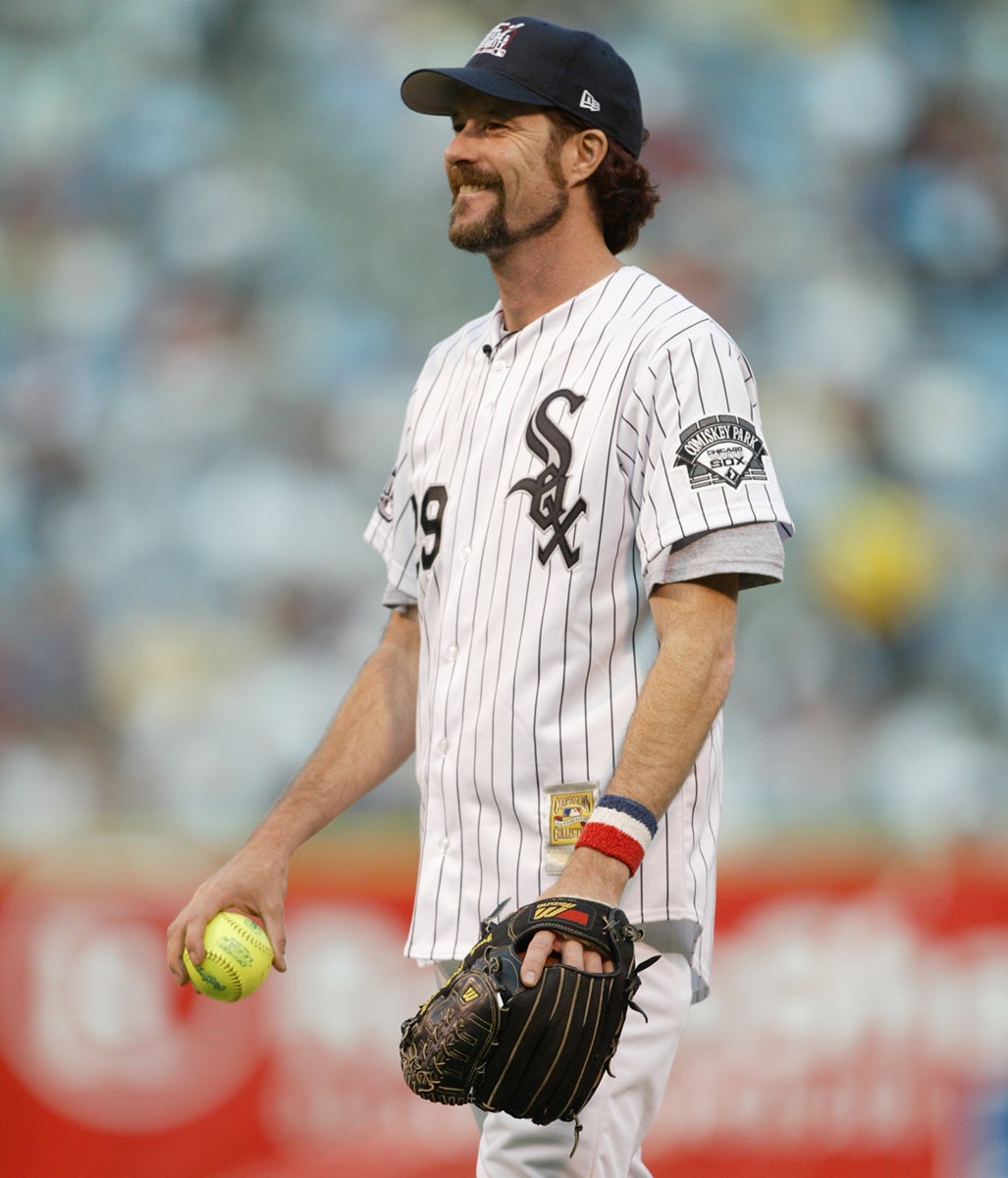
After giving up five runs over four innings against the Red Sox on Aug. 8, McDowell was released. He would retire as an active player soon after.
“I’m not going to sit around seven months, then try to make someone’s roster in Spring Training,” McDowell told the Los Angeles Times.
Always flush with multiple interests – including his guitar work with bands like V.I.E.W. and stickfigure – McDowell would later manage in the Dodgers’ system and at the collegiate level. But it was on the pitcher’s mound that he left his greatest legacy.
McDowell did not miss a start from 1990-94, and from 1991-93 he topped the 250 innings mark in each season. Since 1990, only one other pitcher – Greg Maddux over those same three years – had three straight similar seasons. McDowell is also the only pitcher since 1990 to have three straight seasons with at least 10 complete games.
He finished his 12-year big league career with a record of 127-87 and 3.85 ERA.
“For me, learning more has made me a better pitcher,” McDowell told the St. Louis Post-Dispatch in 1993. “I don’t think I’ll ever be satisfied. Ever.”
Craig Muder is the director of communications for the National Baseball Hall of Fame and Museum

